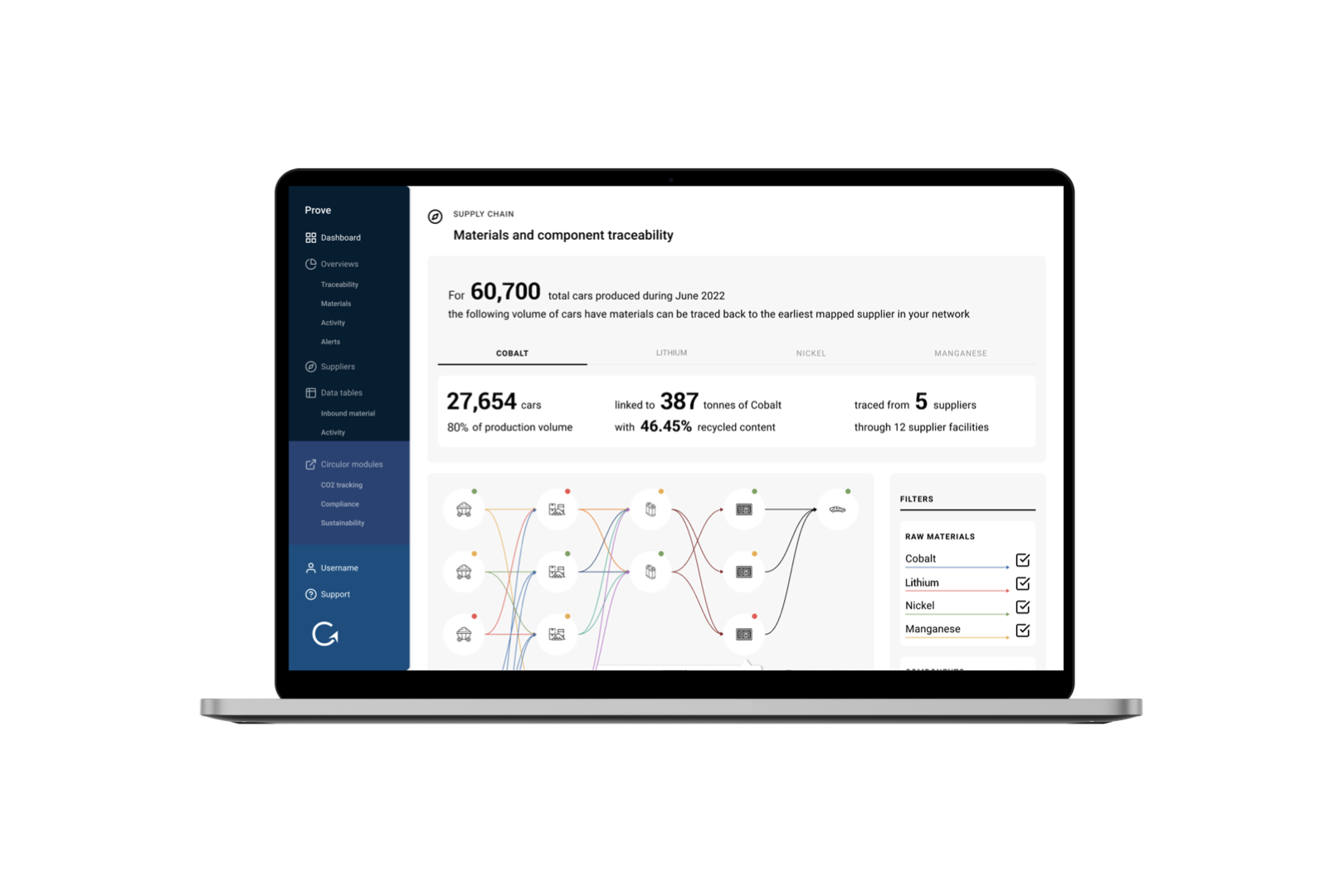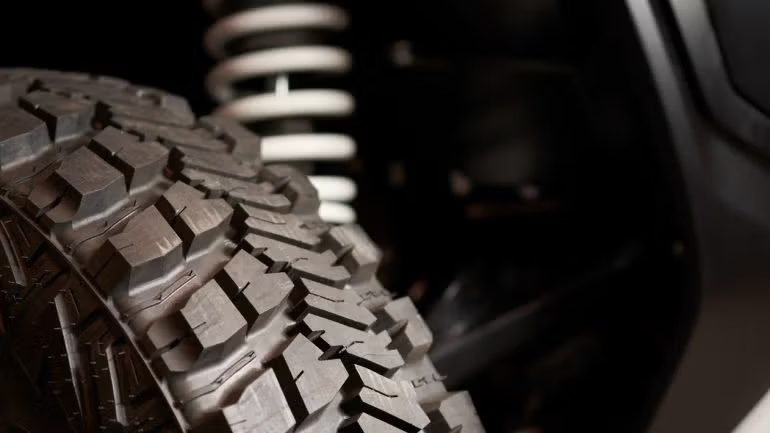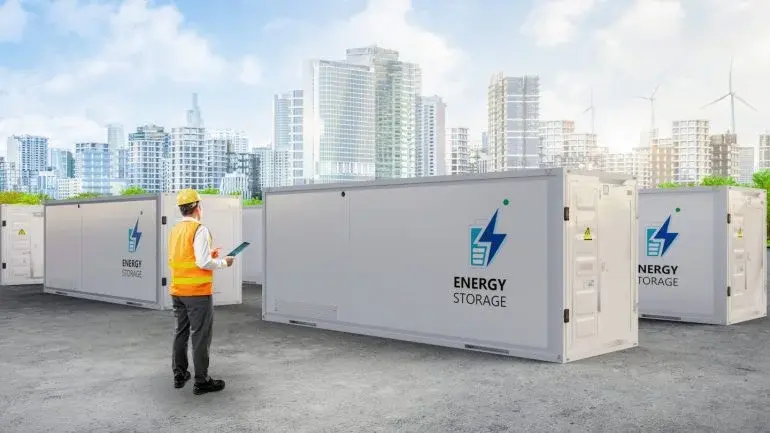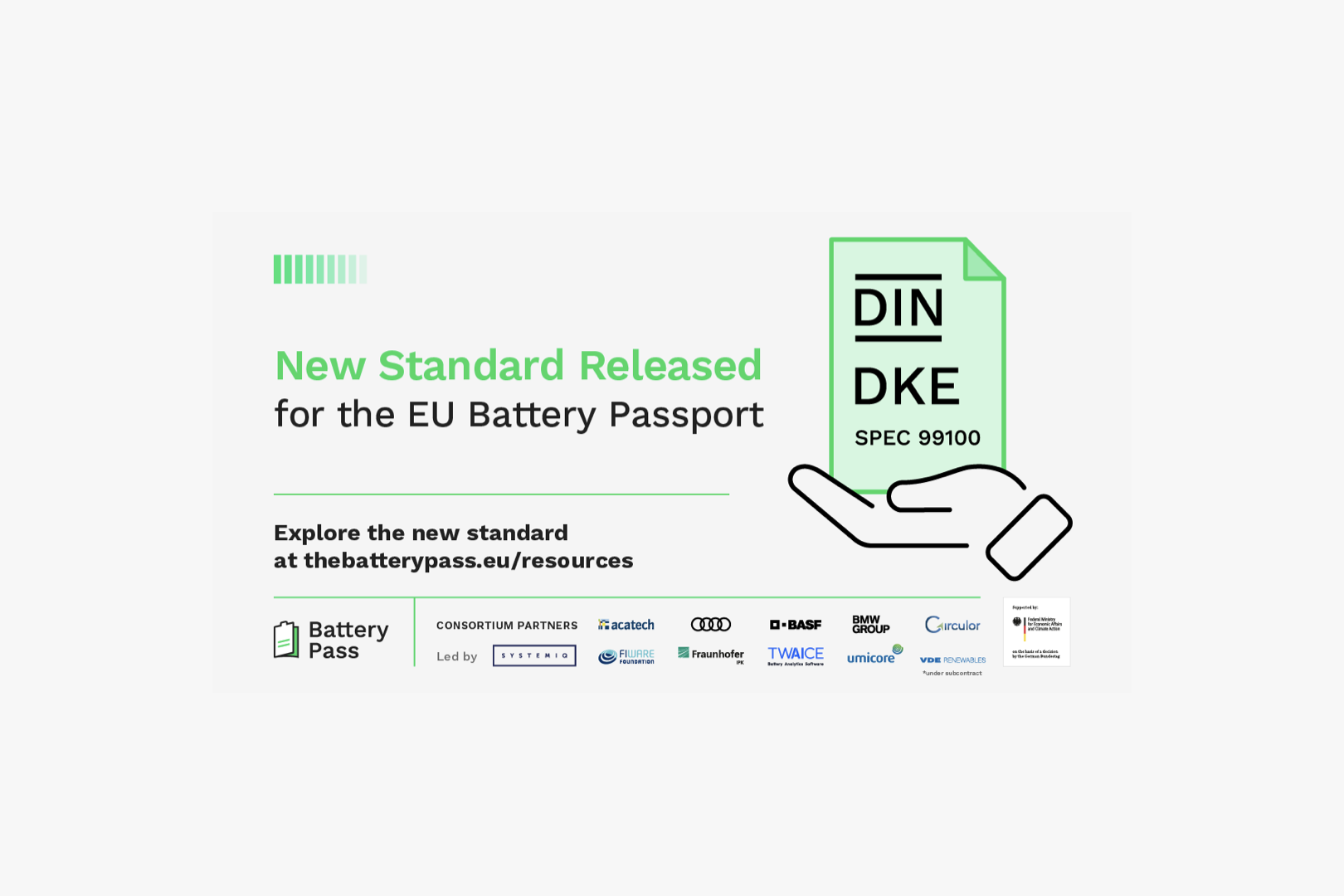
15.01.2025
News
BATTERY PASS: Path Cleared for the Battery Passport
Berlin, January 15, 2025 – Whether in electric vehicles, e-bikes, or industrial energy storage systems, batteries play a pivotal role in achieving climate neutrality. However, comparing their sustainability and performance is not straightforward. This is set to change in February 2027 with the EU-wide mandatory digital battery passport, which will document data along a battery’s entire lifecycle.
A new standard now provides practical guidance: The DIN DKE SPEC 99100, “Requirements for Data Attributes of the Battery Passport”, helps companies implement the battery passport. The German Institute for Standardization (DIN) and the German Commission for Electrical, Electronic & Information Technologies (DKE) published the standard.
Read the full press release from Battery Pass here.
"The DIN DKE SPEC 99100 provides further clarity for digital battery passports, with Circulor’s contribution to this standard based on years of practical experience helping OEMs prepare for these requirements. Our battery passport solution digitally tracks batteries through their entire life cycle, from raw material extraction or recycling facility to finished battery, before ultimately supporting second life uses."
Douglas Johnson-Poensgen, CEO Circulor

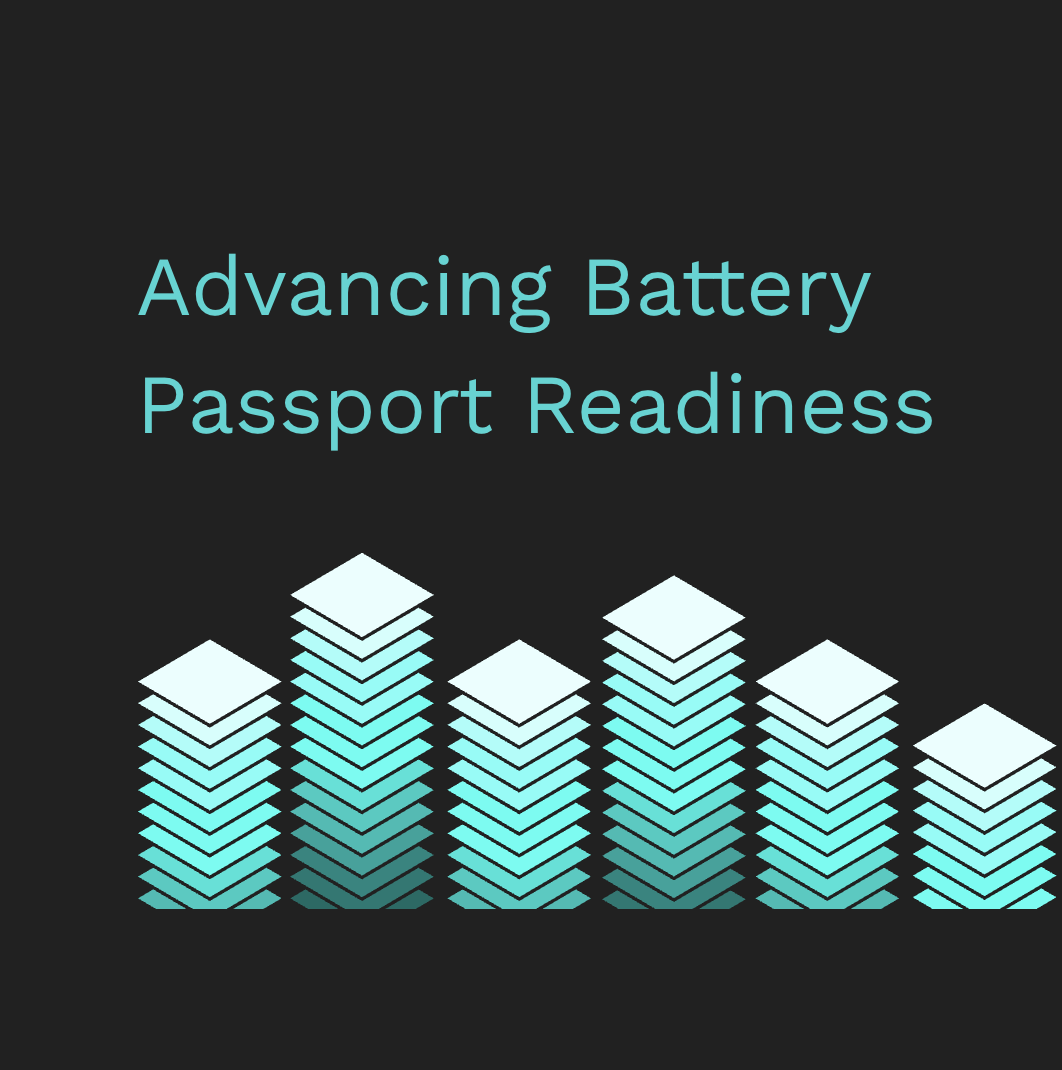


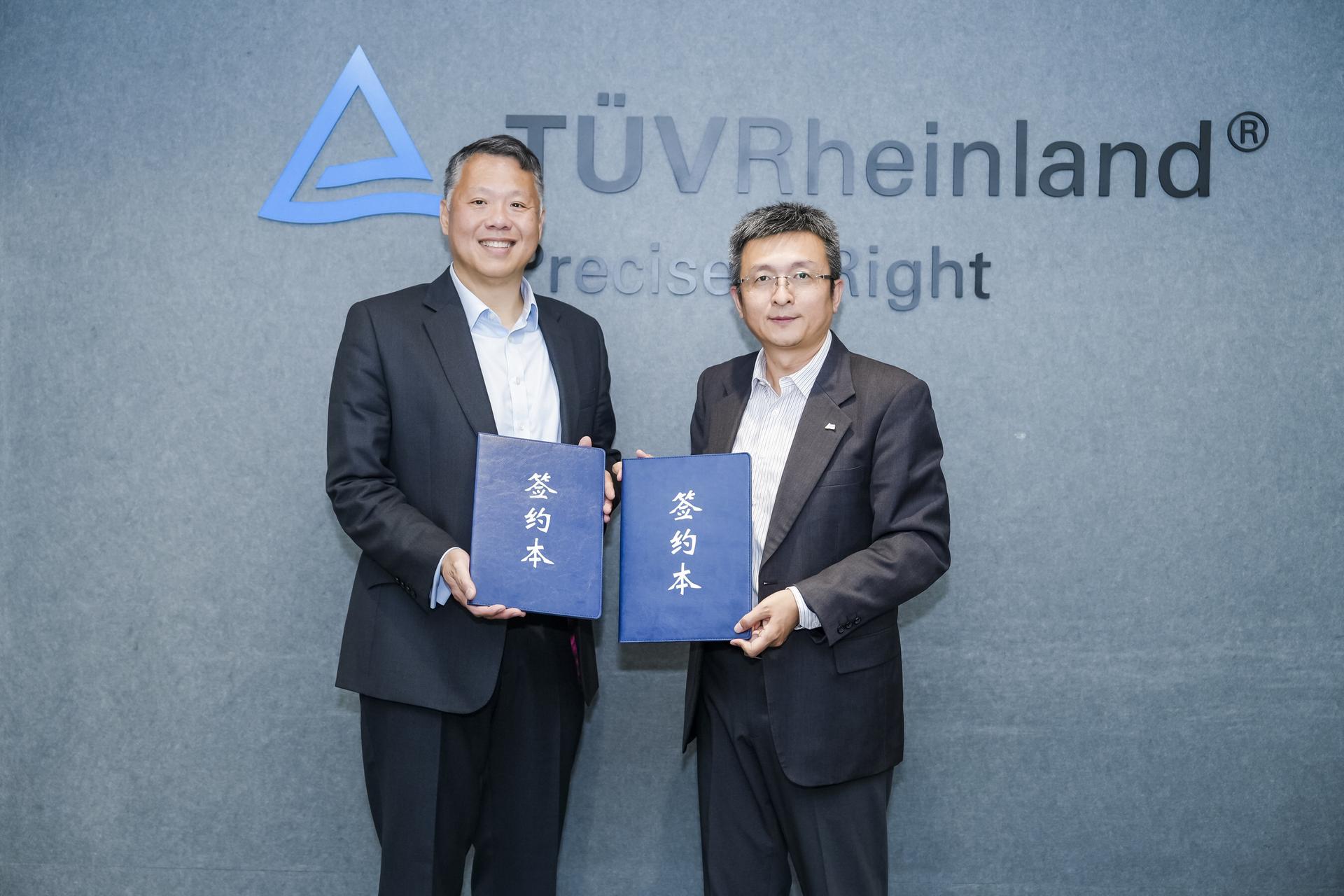

![Acculon RA Circulor - website image.001[44].png](/_next/image?url=https%3A%2F%2Fdecisive-wonder-fa24533282.media.strapiapp.com%2FAcculon_RA_Circulor_website_image_001_44_2720fb315d.png&w=1920&q=75)
